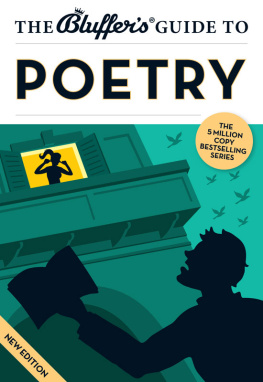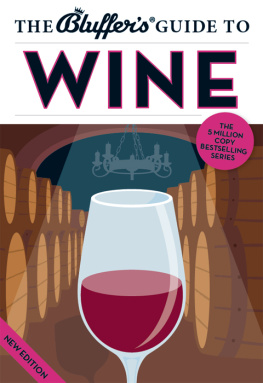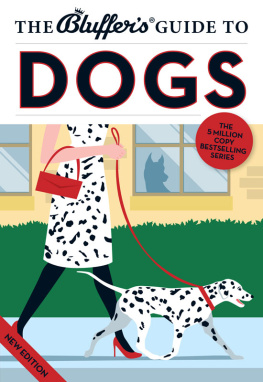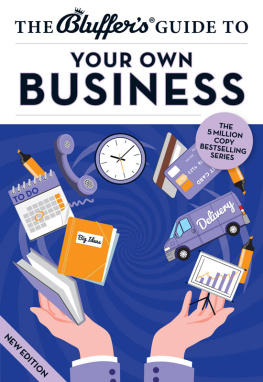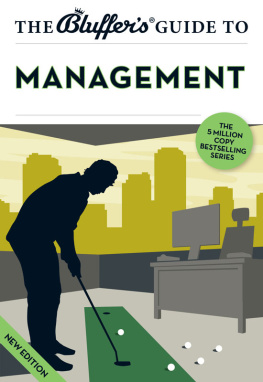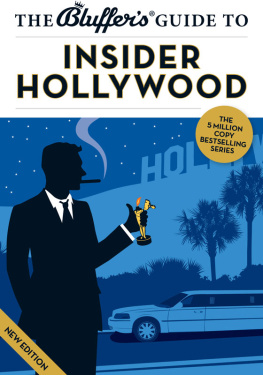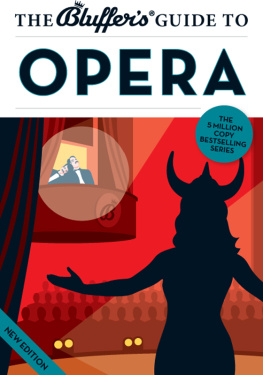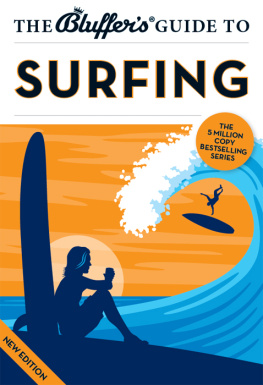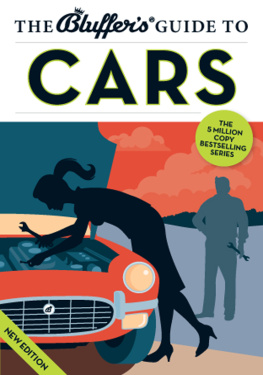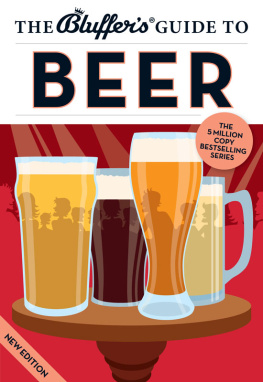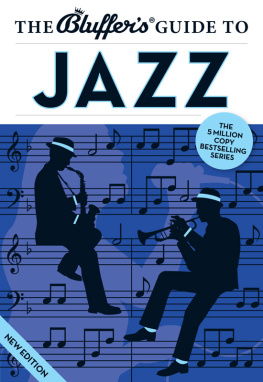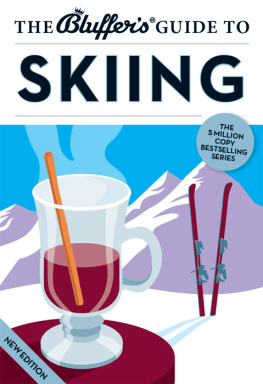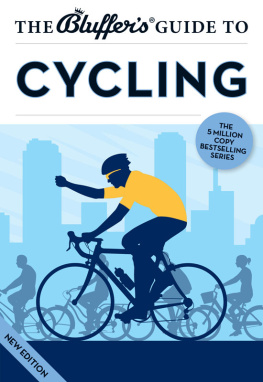

Colette House
52-55 Piccadilly
London W1J 0DX
United Kingdom
Email:
Website: bluffers.com
Twitter:
First published 1989
This edition published 2013
Copyright Bluffers 2013
Publisher: Thomas Drewry
Publishing Director: Brooke McDonald
Series Editor: David Allsop
Design and Illustration: Jim Shannon
All rights reserved. No part of this publication
may be reproduced, stored in a retrieval system
or transmitted in any form or by any means, electronic,
mechanical, photocopying, recording or otherwise,
without the prior permission of Bluffers.
A CIP Catalogue record for this book
is available from the British Library.
Bluffers Guide, Bluffers and Bluff Your Way
are registered trademarks.
| ISBN: | 978-1-909365-36-0 (print)
978-1-909365-37-7 (ePub)
978-1-909365-38-4 (Kindle) |

Poetry is the spontaneous overflow of powerful emotions recollected in tranquillity. Put another way, more mathematically if you like: emotion + time elapsed = poetry. Emotion + immediate outpouring = tweet.

WHAT IS POETRY?
In the days when typesetting was still done by hefty blokes arranging small pieces of lead in a wooden box, pretty much everything on paper that looked neatly aligned on the left and a raggedy mess on the right could be considered poetry. Now that were all dab hands at document layout, such certainty has long evaporated and a more complicated definition is needed. Its really a question of discovering what Donne, Anon, ee cummings, Ovid, Pam Ayres and Percy Bysshe Shelley have in common; or what connects The Epic of Gilgamesh, greetings card verses, naughty limericks, Ode to a Nightingale, Sing a Song of Sixpence and Paradise Lost.
To do this, the biggest mistake is to look at the end products themselves. There appear to be no similarities whatsoever between a Shakespearean sonnet and a Matsuyaman haiku, between a Milligan couplet and three or four thousand lines of Alexander Pope, between one of Edward Lears nonsense rhymes and the neo-futuristic monologues of Andrei Voznesensky.
Note: Dont worry if a lot of words like neo-futuristic, polemical, panegyric, iconoclastic, etc. mean nothing to you. Just use them in a slightly haughty manner before anyone else does, and then add: Not a word that one would normally think of applying to his (or her) verse, perhaps...
This book concentrates on English poetry, with a nod towards the USA and the wider world. Even so, somewhere, someday, someone will hurl a name at you that you dont recognise, a balladeer of whom you know nothing. This is when you should smile enigmatically, and fall back on one of the following bluffs:
a) Yes, I suppose its about time I rediscovered him (or her). This implies that you were aware of this poet ages ago, practically before the ink (or blood) dried on the manuscript. Equally, you might say: Yes, I suppose its about time I rediscovered his (or her) work. Poetry buffs never refer to poems, only to the poets work. This may or may not be because they have never done any in their lives and dont know what real work is.
b) Too deceptive for me, Im afraid. This implies that you have seen through the poets deception, whereas your companion hasnt.
c) Im afraid that my approach to him (her) can only be described as lacklustre. Although you are ostensibly criticising yourself, the implication is that the poet is hardly worth considering.
You can rediscover anybody Byron, Ogden Nash, Banjo Paterson, even Gertrude Stein (Rose is a rose is a rose is a rose). Here you are using a Compound Bluff technique, suggesting that not only have you known the poets work since infancy but that you are constantly re-evaluating poetry, seeking (and finding) new levels of appreciation, new depths of meaning.
Depths of meaning is what poetry is all about. All poetry is deep, profound, heavy, bottomless, suffocating, unfathomable. If you can understand it, it isnt poetry its verse. And then your appreciation should draw on the language of the wine expert. Verse is crisp and dry like a white Burgundy, or sparkling and clear like a young Champagne. Verse can be about anything. Poetry concerns itself only with the inexorable course of love, rejection and death, although a great many poets dont bother too much with the first two, but hasten to the last.
Poetry is what happens when sensitive people find themselves overcome and have pen and paper (or tablet) to hand. They may be overcome by all sorts of emotions or feelings: love, joy (rare), despair (every day), wonderment (often faked), death wish (enormously common), horror, patriotism (outmoded), faith, lust (but only in a caring sort of way) the list is endless. The source of the emotion may be almost anything: the Bible, a battle, a daffodil, a woman, a man, a bird, sunsets, the smell of frying onions. The reaction is always the same. Out come pen and paper, down goes the poem.
Other types of writer dont say: I wrote this novel when I was walking along Hadrians Wall or One night, when I was swimming the Hellespont, I simply had to write this play. Poets do. The outcome of their jottings may be very long or very short. The works may or may not rhyme. They may or may not scan (see Glossary). It doesnt matter. Because they are verbal responses to surfeits of emotion; they are poetry. Whether or not they are good poetry is, of course, another matter. Poetry, as Wordsworth so succinctly put it, is the spontaneous overflow of powerful emotions recollected in tranquillity. Put another way, more mathematically if you like: emotion + time elapsed = poetry. Emotion + immediate outpouring = tweet.
POETS AS BLUFFERS
400 years ago, Sir Philip Sidney (poet, wit, scholar, soldier, courtier and gent) wrote: Now for the poet, he nothing affirmeth, and therefore never lieth.
Its an interesting line for two reasons. Firstly, it shows that even in those days poets were using archaic English thees and thous and listeth and lieth.
Secondly, brave hero and jolly good chap though he may have been, Sir Philip was also a consummate bluffer. Poets are inveterate liars, constantly bending and breaking rules and ignoring Truth for the sake of Art.
Rupert Brooke was one of the worst offenders. Thousands can quote from his poem The Old Vicarage, Grantchester; its one of the Good Old Good Ones of English Verse:
Stands the church clock at ten to three?
And is there honey still for tea?
The church clock did stick in Grantchester in 1911, but at half past three, not 10 to three. Why the change? Half past three rhymes; it even scans as well. Either Rupert Brooke couldnt wait for his tea, or he simply wanted to bluff for the sake of bluffing. Its a common practice in verse and is known as poetic licence granting poets a special station not accorded anyone else. A street traders licence doesnt legitimise untruths or malpractices on the traders part.

Poetic licence allows any and every poet to indulge in regular bouts of bluffing.
Next page
